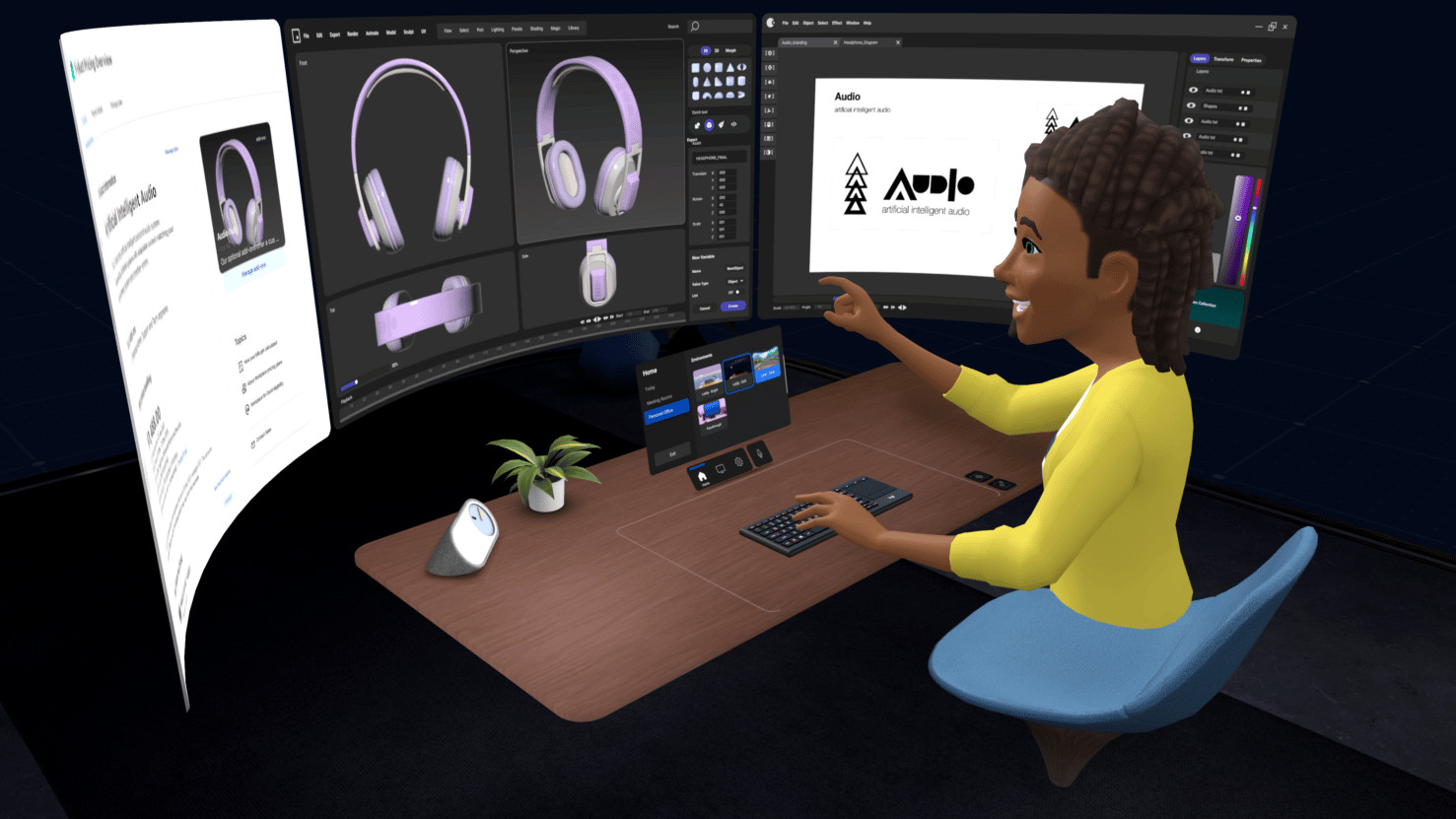The metaverse at work is going to alienate your disabled employees, here’s why
If you’re a business owner or leader thinking about bashing the “metaverse” button, you’re in luck.
New research appears to suggest many workers are willing to embrace the concept, despite often not being able to say why the metaverse at work should exist, how it will improve their working lives, or even exactly what it is.
A report released at the end of September 2022 claims over three-quarters (78%) of “business professionals” – presumably at all levels – want to “embrace the metaverse”, which is definitely a phrase that normal people use.
The majority (71%) of respondents said they could see the metaverse being incorporated into their working lives, and 40% saw the metaverse replacing “static collaboration environments” – presumably the likes of Slack, Zoom, Microsoft Teams, or any of the online collaboration tools that have become common since the Covid-19 pandemic began.
This is despite Deepak Agarwal, Project Manager at GlobalData, admitting that, “the Metaverse is still largely conceptual” following the company’s latest report on the gargantuan size of the metaverse market. It doesn’t yet exist, but the firm says there’s $23 billion in it.
For me the metaverse is several asterisked words at once that I can’t write because I’m still on my trial period. I’m hoping that Mark Zuckerberg losing $71 billion to a buggy mess no-one can be bothered with (even at his own company) will be a wake-up call to everyone else.

“Conceptually”, using the metaverse to sit at a virtual representation of your desk, attempting basically any task with those ergonomic controllers, sounds rancid. And if I ever suffer prolonged exposure to my line manager as a Playmobil man, I’ll sell my earthly belongings and live in a cave. Giving him legs is not the point. Instead, it’s a patronising, exclusionary diktat about all the functioning limbs you need to be “normal”.
Because the most compelling reason why I’m sick of reading about the metaverse at work isn’t that it’s a dull, strange power fantasy, it’s that I’m not going to be able to participate anyway.
The metaverse at work is exclusionary
In late August 2022, The Conversation published an article by three academic researchers in England discussing the potential benefits of the metaverse for people with disabilities.
Except the article bases its arguments on a reductive view of disability that amounts to “wheelchair-bound”. That’s not my experience of disability. I can walk, but I can’t even hold the controllers, and so any virtual reality is a non-starter for me.
It also concedes that virtual mobility – the idea that technology can give disabled people with limited physical mobility more agency and independence – is already achieved by the internet.
I can agree with this. The internet lets me make a living, have a social life, and absorb information and culture. It is literally the apex of human existence, and that includes the ceiling of the Sistine Chapel – which the internet lets me look at any time I want.
Computers have been around for so long that accessibility solutions – speech recognition, text-to-speech, on-screen keyboards, eye tracking, you name it – make working life accessible to pretty much everyone. Is it really progress if we tear all that up? That’s a rhetorical question, Mark.
Worse still, we haven’t reinvented the internet just once, but at least fourteen times. Geekflare keeps adding to this number, and I keep lamenting that God is dead. You can’t expect accessibility standards to bed in across that many platforms.
We need the solutions that already exist, especially at a time of massive upheaval like – oh, the one we’re living through now. If Microsoft’s latest Work Trend Index report is to be believed, 85% of leaders don’t trust that their employees are being productive in a hybrid work environment.
That’s nonsense, obviously. But I’ll tell you what – a chunk of your disabled employees won’t be productive when you put them in an environment where they literally can’t work. And you’re going to sack them, are you, because of “the future”? That should be an interesting day in court.
Forcing the metaverse into a work setting is going to disenfranchise so many people. If you really want to recreate Ready Player One or Snow Crash – that’s how you get there. Oh, you haven’t read them? You just thought their Wikipedias were cool? Okay.

It’s irresponsible to push for “the metaverse at work” without considering these implications and ensuring that alternative working environments exist. And we do have those environments, because a plague forced us to make – a-ha – progress.
And if your gotcha here in the MENSA meeting is “well you can still dial in on video conference”, that’s a tacit admission that we’ve already cleared this high bar of invention. It also disregards my staunch religious belief that contact with the metaverse of any kind will make my heart explode.
Reconsider.
stereoguide-referencehometheater-techradar